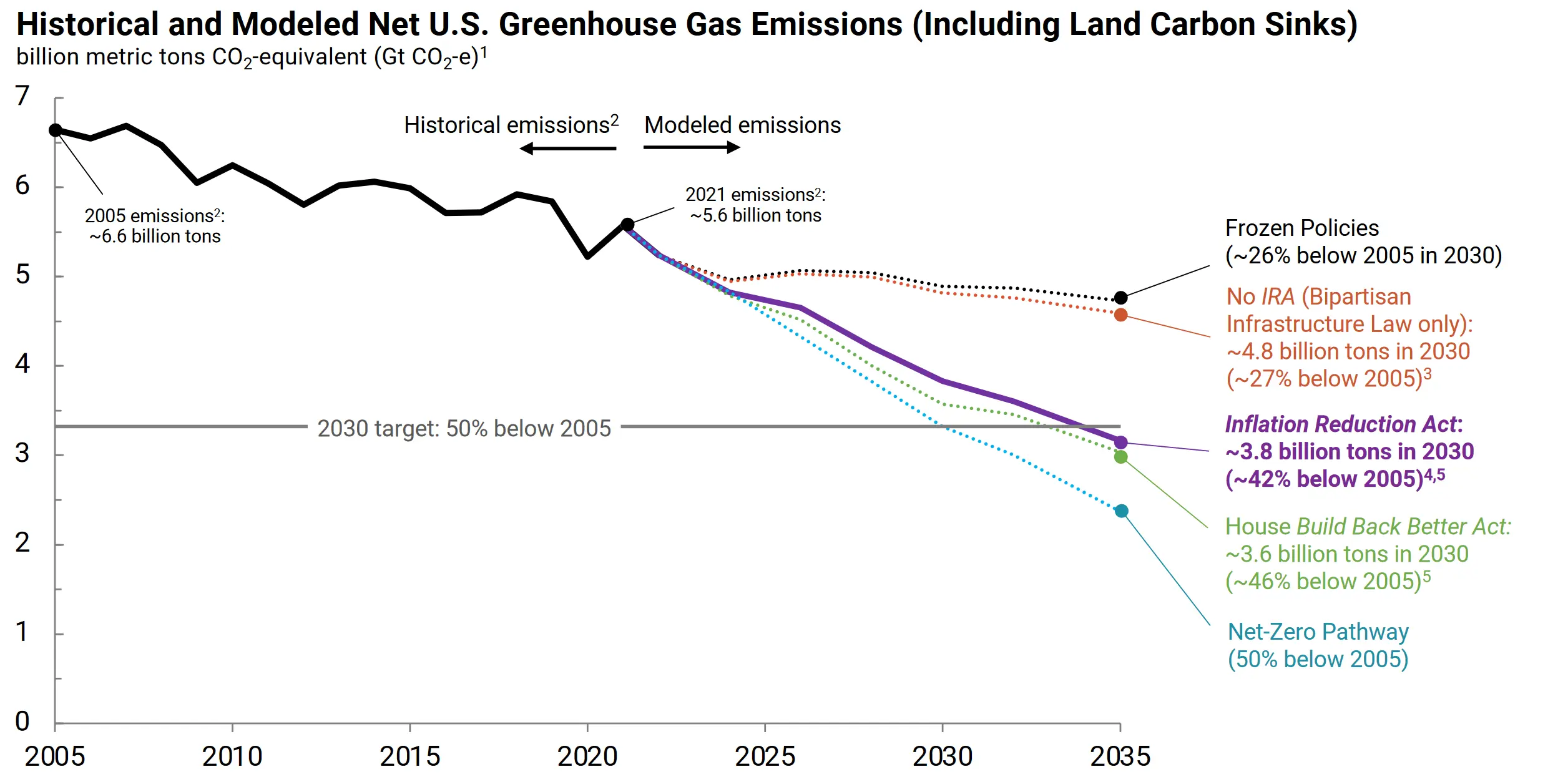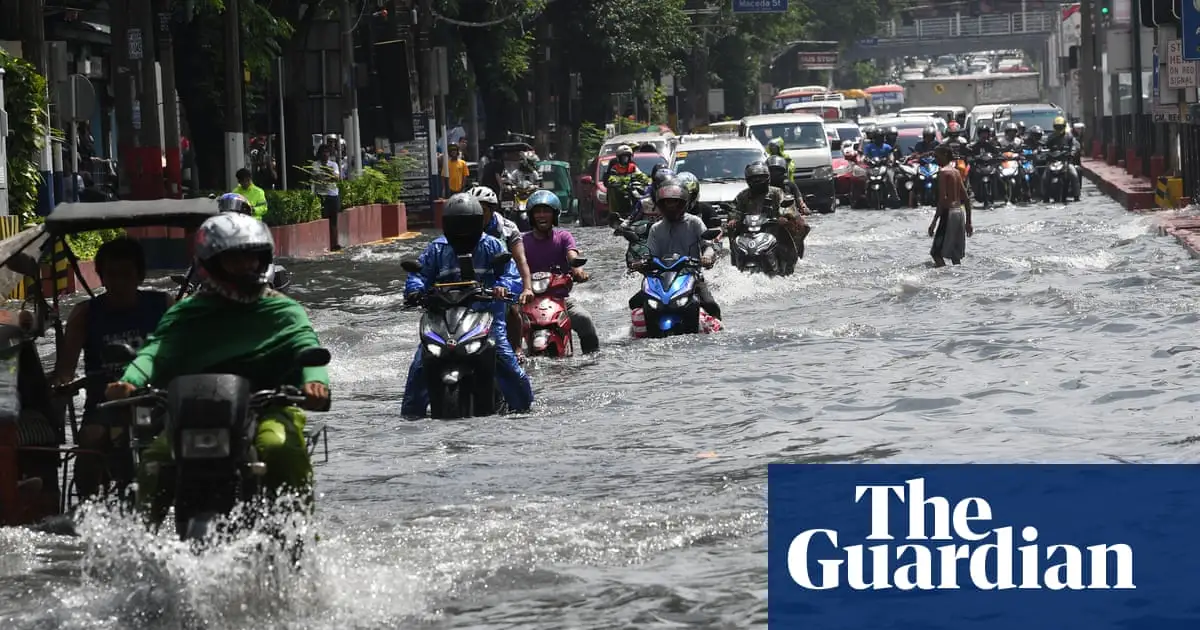Buckle up, it will get worse.
By how much is a human decision though. The bulk of coal, tar, oil, and gas are still in the the ground. There are forests yet standing. Cattle are the bulk of mammals.
We can choose to leave fossil fuels in the ground unburned. To manage forests to keep them around. To shift away from eating animals. Do those, and we can limit the damage.
Yes, we can choose to.
But those in power only care about money and power. And until they are dealt with or otherwise removed from said power, nothing is going to change.
We’ve already started to get change, even with the very limited and imperfect power that we have. Here’s what is happening in the US:

The 2022 report shows a 0.8% increase for U.S. emissions. I get your point is that there are many plans to change that, but so far we’re still going up and that’s including offshoring some industries. That’s why the world overall reached a new high. Granted the EU has made some progress, being I believe the only group showing a decline in emissions (-2.5%). As with any call for solar and wind (which was probably a key component) I have to ask if the environmental costs due to their manufacturing was worth it. I know, we have to do something…we sure can’t look at the demand side of things though, can we? Always about how to make more energy with less bad effects.
Sorry…once you take the red pill it’s hard to look at anything positive anymore. I used to think that way…
Yes, there’s a rise as a result of the decision to stop doing anything about COVID. It doesn’t really change the trajectory driven by a piece of legislation which won’t be fully in effect for a couple more years.
South America also had a decline in emissions in the last two decades. Well North America as well, but coming from a high level. Africa is intresstingly having stable emissions since a decade, but given how poor the continent is that is likely to change. Really emissions growth comes from Asia and that is basicly it. It is countries like China, India, Vietnam and Indonesia becoming wealthy, which requires more energy. Obviously a lot of that is from fossil fuels.
However on a per capita bases the US is still among the worst and while Europe is better some countries are still bad.
Buckle up, it will get worse.
Even if we hit all the reduction goals as they stand now worldwide. We’ll still deplete world oil and gas reservoirs between the century. The damage is done. Humanity made a decision about 120 years ago and we chose wrong. Even if we all died right now and all fossil fuel burning, industrial agriculture and extraction stopped all at once. It would still take the ecosphere a couple of centuries just to course correct, let alone return to the climate patterns of two centuries ago.
Let me tell you the quiet part out loud. Some rich countries individually might be hitting their climate goals. But worldwide overall we are way behind. So buckle up, it will get worse.
We’re not where we need to be in order to limit warming to 2C, but we’re doing a lot better than we were a decade ago, when it looked like 4C by 2100 was likely.
Sounds kind of like “I had a liter of cyanide and only drank 1 cup of it,. Most of the cyanide is still in the bottle, so I should be fine if I don’t drink the rest!”
It’s a human decision as it’s humans who can make this decision.
However it’s a decision that only a very small minority of humans can do, most of us have no say in this.
Most us aren’t the final decisionmaker but have a lot of ways to out our thumb on the scale to influence the outcome
Has
humanityour corporate overlords finally broken the climate?“July has been the hottest month in human history and people around the world are suffering the consequences,” said Prof Piers Forster, of the University of Leeds, UK. “But this is what we expected at [this level] of warming. This will become the average summer in 10 years’ time unless the world cooperates and puts climate action top of the agenda.”
I’m sorry, but saying there’s a chance to stabilize temperatures or prevent current conditions from becoming the new normal is irresponsible science journalism and straight up irresponsible science. Current conditions are the new normal and we’re still pumping fuels.
Currently planned fossil fuel production vastly outpaces any climate goals. Impacts will become worse. They will not stabilize and they definitely won’t get better than they currently are. (Super simple reference document: https://productiongap.org/2021report/ )
There’s been zero discussion of canceling existing leases or restricting current extraction, let alone canceling and dealing with limits in production and available energy that would cause. There’s been zero discussion of reallocating green sources to ensure food and fertilizer production to reduce food shortages and help feed people as production of consumer goods would be scaled way back without rampant fossil fuel usage there to drive it. There’s been zero planning for what happens next.
We are driving headlong over a cliff.
We’re still discussing recycling which has been proved to almost never actually occur.
No one is shutting down wells and mines. We are actively planning for destruction and devastation on a global scale and a complete collapse of ecosystems. It’s fucking business as usual.
This guy, he’s at least being honest:
“Knowing that we will look back on today’s extreme events as mild relative to what lies in our future is truly mind-boggling and hopefully serves as a wake-up call,” said Dutton. “The speed at which we make this transition will define the future that we get.”
Dude relax and look at all the profit.
/s
We had an okay run.
There is the option, which you are describing of securing food supply, scale down of useless consumption and a strong roll out of low carbon power sources. That can be done, but nobody actually in charge even comes close to doing that, however in theory it would be possible.
Is this slowpoke news?
I hear we spent trillions of dollars on a climate bill. I been looking for solar jobs and theres nothing. DoE has like…2 administrative jobs.
You’re looking in the wrong place then. Most of the jobs are in private industry; very few are in government.
Thats not the only place i looked.
Tough to give a specific answer without knowing your location and full background, but I’ve seen a lot of people shift to working on or another piece of decarbonization in recent years
They’re not under the couch either
Found them.
They are in the coal industryI’m sure you meant clean coal, right?
But I do know someone who works in solar panels installation in the US and says business is pretty good and firm has been growing!
That’s good to hear.
In Germany the jobs in the coal industry needed protection. At the same time the solar sector was reduced drastically over the last ten years and the jobs went abroad.
Edit: i don’t know what you mean with “clean coal”
Until governments ban private jet travel, we just won’t see serious public support. People struggling economically will fight back against taking on the brunt of the cuts.
Nobody actually wants to cut their carbon footprint, including well-meaning wealthy who advocate for change.
We’re collectively in a heartbreaking devastating mess.
Accomplishment Unlocked
Big Oil will stop at nothing to slam that window shut.
Poke the climate with a stick. See if that will help.










